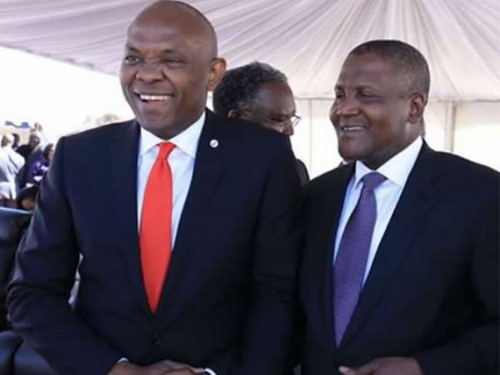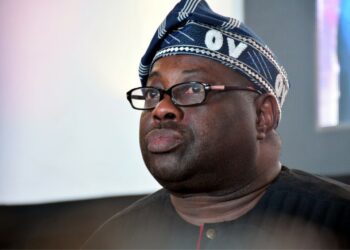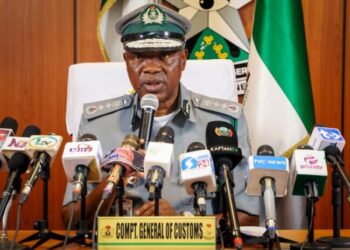President Bola Tinubu has created an economic advisory committee comprising the federal government, sub-nationals and the private sector.
This resulted from talks between the President and key stakeholders at the State House, Abuja, on Sunday evening.
The development came as the falling naira exchange rate, rising inflation and other economic headwinds have continued to worsen the cost of living crisis.

Some of the prominent members of the private sector that made the list include the Chairman of United Bank for Africa, Mr. Tony Elumelu, and the Chairman of Dangote Group, Aliko Dangote.
Speaking at the meeting on behalf of the federal government, Tinubu said the goal “is to provide additional efforts” in stabilising the economy and ensuring the “best economic future” for Nigerians.
He said, “Let’s look at what we’re doing right and what we’re doing wrong to bring life back to the economy. As I have said many times, the people of this country are only the people we have to please.
“And we are very much concerned from students to mothers and fathers, farmers, the traders and realising that everyone of us will have to fetch water from the same well. We’re looking for additional efforts that’s might help the downtrodden Nigerians and we will provide hope and reassurance that economic recovery is on its way.
“We are not saying that we have all the answers. But we will not be blamed for not trying. We assure Nigerians that we will do our best to get our marshall plan in place and fashion out the best economic future for this country.”
At the meeting, Tinubu discussed food security, job creation and the exchange rate.
Dangote, who was part of the private sector delegation on the committee, said Sunday’s gathering stakeholders the opportunity to clarify the specifics of their roles in President Tinubu’s Renewed Hope Agenda.
He explained, “I think we had a very good meeting. What we discussed is generally about the economy, food security and security of the nation. We discussed everything in detail.
“The economic presidential advisory committee which has been set up…will look at all the issues and address them, coming from job creation and food security.
“So, all these things have been discussed in detail. I can’t give you all the details right now, but we are hopeful and we’re a great nation. We have what it takes to turn around the economy and we’re going to do that.”
Meanwhile, Elumelu noted implementing the decisions made that the gathering “will have propel our economy and help alleviate the poverty in the land, help create employment and help put food on the table of Nigerians.”
The Chairman of the BUA Group, Abdul Samad Rabiu, revealed that the committee held frank and exhaustive discussions with the President on the foreign exchange rate.
Citing the recent volatility of the naira against the dollar, Rabiu said, “We discussed on how to bring the foreign exchange rate down because we all know that what is happening as regards the foreign exchange is artificial. It is manipulative and thank God the CBN is doing quite a lot.”
Meanwhile, states have expressed readiness to partner with the federal government’s welfare interventions to alleviate the hardship on Nigerians. They said the advisory committee’s decision would only yield results when execution is prioritised.
Governor Dapo Abiodun of Ogun State said, “As a governor, I can assure you that all hands on deck. All governors have resolved to join hands with Mr president to ensure that he provides the necessary intervention to cushion the effect of what we’re going through while we are waiting for the implementation and the evidence of the fiscal and monetary policies already in place.
“In my state and other states, we are bringing in rice, we’re bringing food items and selling at rates that can be obtained before the downslide of the naira. So we are going to be doing all these to bring succour to the common man until we begin to see the evidence of the fiscal and monetary policies.”
On his part, Governor Charles Soludo of Anambra State said the tripartite committee “will be meeting from time to time to evaluate how things are going and make recommendations to Mr. President and the nation as well.”
The Director-General of the Manufacturers Association of Nigeria, Mr Segun Ajayi-Kadir, affirmed that the private sector “will play a very significant role” in promulgating workable recommendations to the President on economic matters.









